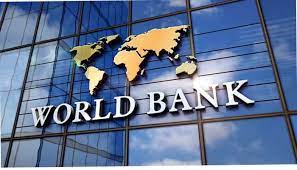World Bank Approves $46 million to Increase Access to Child Healthcare Services

Washington: The World Bank’s Board of Executive Directors today approved US$46 million in financing for theKhyber Pakhtunkhwa Citizen Centered Service Delivery Project, which will support both supply and demand side interventions to improve health service delivery in the province, as well as the operations of citizen-centric administrative facilitation centers in the Newly Merged Districts.
“The Project will support the Government in expanding the provision of Child Wellness Grants targeted at mothers, provided they attend health awareness sessions”, said Najy Benhassine, World Bank Country Director for Pakistan. “It will also help improve access to quality child health-related services.”
Nearly 300,000 children under the age of two will benefit from Child Welfare Grants (CWGs). To mitigate the financial barriers associated with the use of these services, families of these children will receive PKR 12,500 (approximately US$45), spread over five visits, for attending the health awareness sessions and growth monitoring of their child.
The project will also support the Khyber Pakhtunkhwa Government in adoption of the one window operation model of the Citizen Facilitation Centers (CFC) to promote essential service delivery to the local population. The CFCs, in addition to provision of Child Wellness Grants, offer vital services to the local communities such as registration services including recording of birth, death, marriage, divorce, family registration etc. 560,000 individuals will be utilizing the services provided at the CFCs.
“The project will facilitate the transition of the program to the province of Khyber Pakhtunkhwa, bridging the continuity of the activities under the 40 CFCs already established with the support of the Federal Government,” said Amjad Zafar Khan, Task Team Leader for the project.
Note: Newly merged districts of Khyber Pakhtunkhwa include the former Federally Administrated Tribal Areas.
The World Bank in Pakistan
Pakistan has been a member of the World Bank since 1950. Since then, the World Bank has provided $40 billion in assistance. The World Bank’s program in Pakistan is governed by a Country Partnership Strategy with four priority areas of engagement: energy, private sector development, inclusion, and service delivery. The current portfolio has 58 projects and a total commitment of $14.8 billion.





